10 Books for the Summer
It’s summer! Hopefully that means you’ll have some time to read, or at least some time to pick out books that will sit open on your lap while you scroll on your brain rot machine, and I humbly offer up ten books for your consideration.
I’ll be up front that I’m not the best person to offer up stereotypical beach reads. My partner still mocks me for the time I chose a history of Sweden as my beach read. (Rebuttal: it’s interesting to think about how a country without significant natural resources created one of the world’s most effective welfare states!) But I can promise that these all are beautifully written, many are character-driven, and all require less brain power than my history of Sweden.
These books are all in some way about the relationship between the Global South and those of us in the Global North, and books on this topic are so important. Distance means that we don’t directly see and interact with people in the Global South the way we do with people near us, and books are a rare method of catapulting us into a distant place and letting us see the world through different eyes. It’s also the case that issues that we’re less familiar with can take more time to understand, and books that we invest a chunk of time in can transform our worldview in a way that 280-character posts can’t.
So, here are ten books have shaped the way I see the world and myself. But I know there are so many great books out there I have yet to read, so put your book recommendations in the comments!
King Leopold’s Ghost by Adam Hochschild
I will read anything Adam Hochschild writes (Bury the Chains is also outstanding), and when I’m asked what my favorite book is, I usually name King Leopold’s Ghost. The book is the story of King Leopold of Belgium’s reign of terror in the Congo and the movement that stopped him (or at least the worst of his excesses). The key scene of E.D. Morel on the Belgian docks, realizing that the ships coming back from the Congo were filled with rubber and the ships headed to the Congo were filled with guns, encapsulates so much about injustice and inequality in a modern, globalized world. It is the “together but apart” phenomenon I named this Substack after: people on opposite sides of the world are together enough that the same rubber picked in the depths of a terrorized Congo ended up in products sold on European streets, but they live so apart that the person who led the movement to end King Leopold’s rule of the Congo never set foot in the country. As you might have picked up, E.D. Morel is a hero of mine, and by coincidence his resting place is in the same crematorium as my grandfather.
Behind the Beautiful Forevers by Katherine Boo
It’s kind of hard to believe this one is nonfiction. An incredible feat of research, Behind the Beautiful Forevers is simultaneously a murder mystery thriller and a deeply personal look at life for members of the Indian underclass. It drives home just how cruel poverty is and how comprehensively it shapes people’s lives, but also proves that we can all find something to relate to in people who eek out a living picking through garbage.
Factfulness by Hans Rosling
I realize that the subtitles to the first two books I recommended included the words “terror” and “death”, so here’s some good news! My take would differ a bit from Hans Rosling’s, but Factfulness is a good look at the way that most things in the world really have been getting better. It’s also a wonderfully simple expression of very complex issues—lots of heuristics here that help you understand the world.
Development as Freedom by Amartya Sen
If you want one book for an overarching philosophy of development, this would be the most common recommendation—and with good reason. Development as freedom is a transformative concept that gets away from reductive metrics without negating the importance of the traditional focuses of economic development. In this view, things like GDP per capita matter, but they matter to the extent they expand people’s ability to live the lives they want to lead. Sen also manages to integrate civil and political rights (right to fair trial, freedom of speech, etc) with social and economic rights (right to health, education, etc). In a memorable story from his childhood that illustrates this, Sen discusses a Muslim worker who has so little money he is forced to come to work during religious riots, exposing him to great physical risk.
How Beautiful We Were by Imbolo Mbue
I do read fiction too! Set in a village in an unnamed African country, the characters in the book oscillate between hoping a nearby oil project will benefit them and fighting back against its American owners. It’s a nuanced, intimate look at rural life, global resource extraction, and family and tradition. I also deeply loved Imbolo Mbue’s Behold the Dreamers.
City of Thorns by Ben Rawlence
One of those books that manages to take a complex policy issue and put it in human terms. City of Thorns is set in Dadaab, the world’s largest refugee camp, largely populated by Somalis who fled to Kenya. It follows nine people in the camp, tracing their hopes, flaws, and fears as they face impossible circumstances. A gripping story that manages to humanize all involved.
Reconsidering Reparations by Olúfẹ́mi O. Táíwò
This is technically a work of academic philosophy, but it’s the smoothest read of such a book that you’ll ever find. Reconsidering Reparations ties together slavery and colonialism for a global view of racial injustice. Its idea of a “constructive” view of reparations, in which reparations are not a one-off remedy of past harms but rather an ongoing project of reconstructing the world, is one I’ve found very valuable. Táíwò’s Elite Capture is also an important read, if not quite as internationally focused.
The Haves and the Have-Nots by Branko Milanovic
Branko Milanovic is the leading economist on global inequality, with his analyses of huge data sets having produced findings like that 60% of the money a person will earn in life is down to the country they happened to be born in. I constantly find myself coming back to his work. The data in The Haves and the Have-Nots is a little dated at this point (published in 2012), but it’s probably the most accessible book-length version of his work. Global Inequality from 2016 is also good.
My Fourth Time, We Drowned by Sally Hayden
For migrants and refugees seeking to enter Europe via boat, North Africa is a central, deadly leg of the journey. By many analyses more people die crossing the Sahara than crossing the Mediterranean. Hayden’s book follows people through their journeys, many of whom fled deadly dangers at home only to end up in horrific Libyan detention centers. (There are some happy endings too.) It’s a captivating, chilling read that puts square focus on Europe’s decision to outsource migration policing to countries like Libya—and one that is even more relevant now that the Trump administration has tried to deport people to Libya even when they have no connection to the country, and floated the idea of moving (i.e. ethnically cleansing) a million Palestinians to Libya.
Open Veins of Latin America by Eduardo Galeano
Any list of books on the relationship between the Global North and South would be remiss if it missed the iconic writing on this topic from the 1960s and 70s, when postcolonial movements were at their peak. These books can be a bit dense for the modern reader, but Open Veins of Latin America is well worth a read. Open Veins is a bracing look at how European colonialism and US neo-colonialism have extracted Latin America’s wealth. And as anyone who has read Soccer in Sun and Shadow or Los Nadies knows, Eduardo Galeano sure knew how to write.
Honorable mentions: Mountains Beyond Mountains by Tracy Kidder, Poor Economics by Abhijit Banerjee and Esther Duflo, The Away Game by Sebastian Abbot, Not Enough by Samuel Moyn, Kicking Away the Ladder by Ha-Joon Chang, The Poisonwood Bible by Barbara Kingsolver, How China Escaped the Poverty Trap by Yuen Yuen Ang, Thinking Small by Daniel Immerwahr, Give a Man a Fish by James Ferguson, Americanah by Chimamanda Ngozi Adichie, The Uninhabitable Earth by David Wallace-Wells, Dreamland by Carly Goodman, The Great Escape by Angus Deaton
AOB
Remember to put your book recommendations in the comments!
A mass immigration purge used to erode democracy and increasingly framed around keeping out the “Third World.” Hurtling towards an utterly irrational, exceptionally unpopular war with Iran, pulled along by a country busy committing mass atrocities in Gaza. Stripping aid from the world’s poorest people to provide a blueprint for the world’s richest man’s illegal destruction of government. As you read the news, remember that one of the central animating forces of American politics right now is our relationship with the Global South. It’s high time to put forward an affirmative, progressive vision of how we can all thrive—in the US and globally—rather than letting people with a zero-sum, deeply racist worldview shape the terms of debate.
For a moving look at one of the people who lives were put in danger by the cruel recklessness of USAID’s destruction—in this case, 9-year-old Diana from Zambia—read this story.
I try to keep my job and this Substack separate as I’m writing in a personal capacity here, but I can’t miss the opportunity to highlight the new debt report from the Vatican’s Commission of Experts, which includes three of my colleagues. Almost nothing harms quality of life on a greater scale than the debt crisis enveloping developing countries. The Catholic Church played a key role in the last major round of debt relief, the Jubilee year of 2000, and one of Pope Francis’ last acts was to create a Commission of Experts to report on how to solve the debt crisis in the Jubilee year of 2025.
Likewise, the UN Financing for Development Conference taking place at the end of the month is an occasion to take stock on developing countries’ ability to find the money to invest in development. Unfortunately, this has taken serious turns for the worse in the last decade. I was quoted in this Devex article on the topic, which pulls heavily from a blog I wrote on the subject.
If you liked these books recommendations, you might also like my post on where I get my news.
Where I Get My News
·It’s hard to find the best places to learn about the world. It’s even harder when a broken information ecosystem incentivizes superficiality and misinformation, news cycles last about 12.25 minutes, and the media rarely casts its gaze beyond our borders. So, in hope of making it a little easier to learn about the world, I decided to track where I get my…


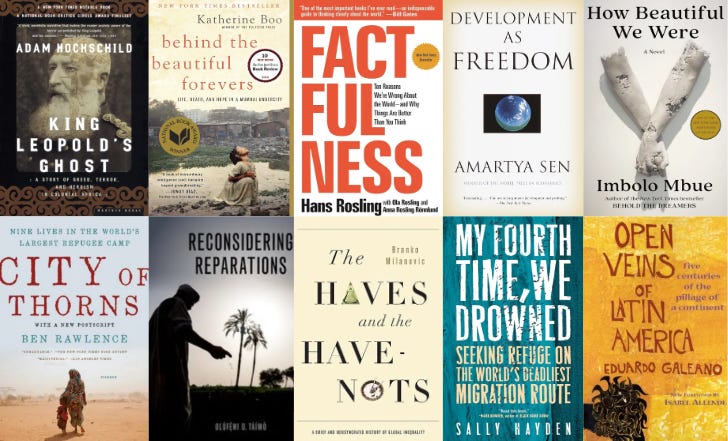
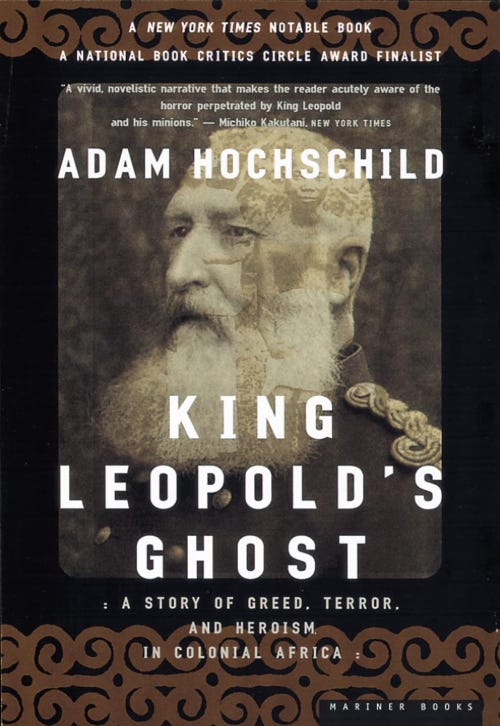
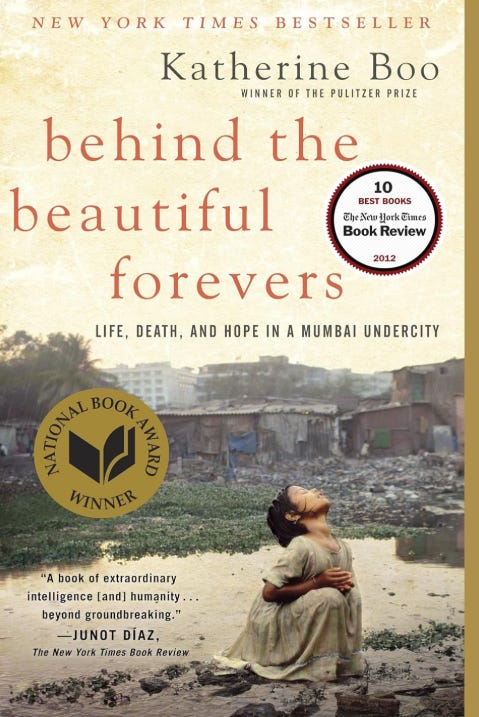
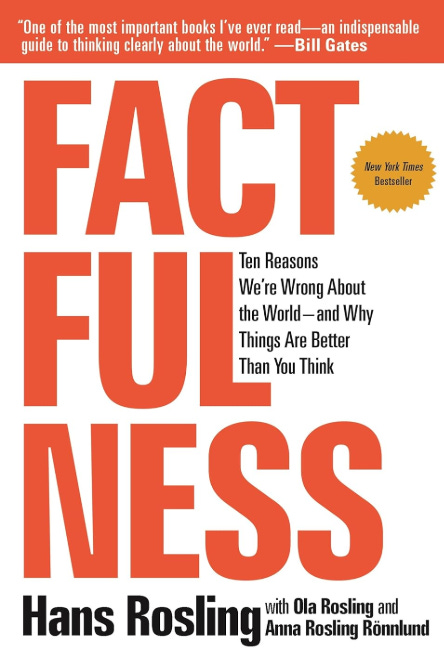
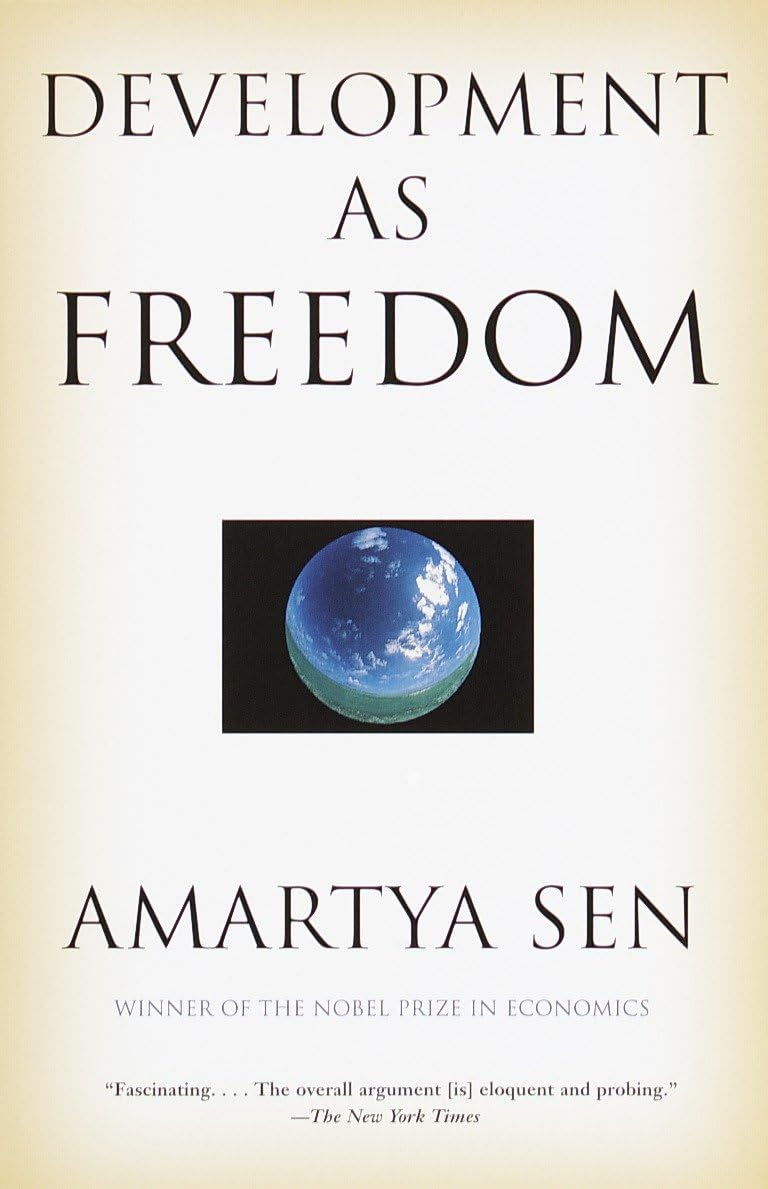
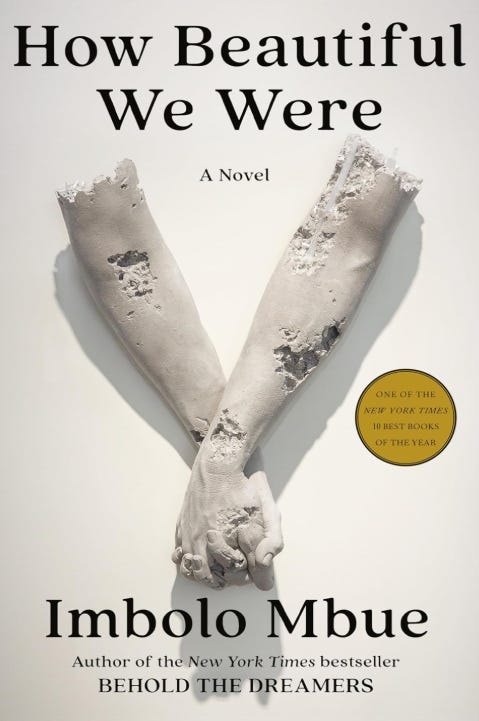
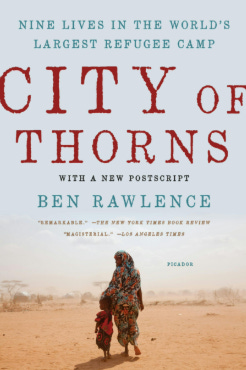
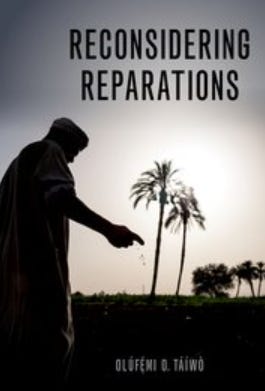
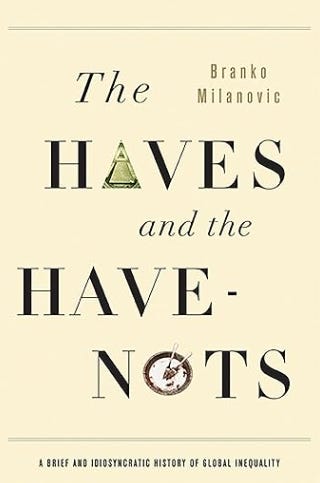
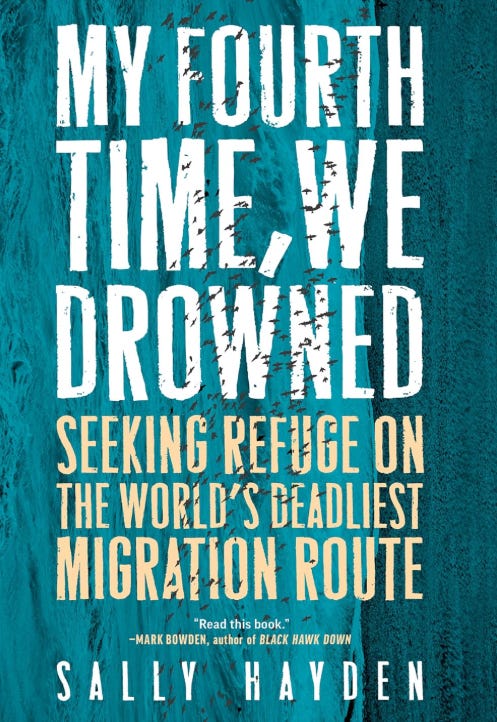
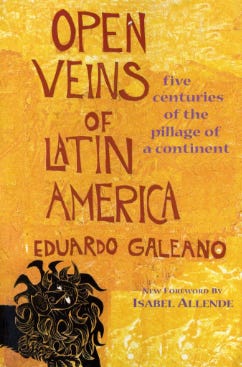
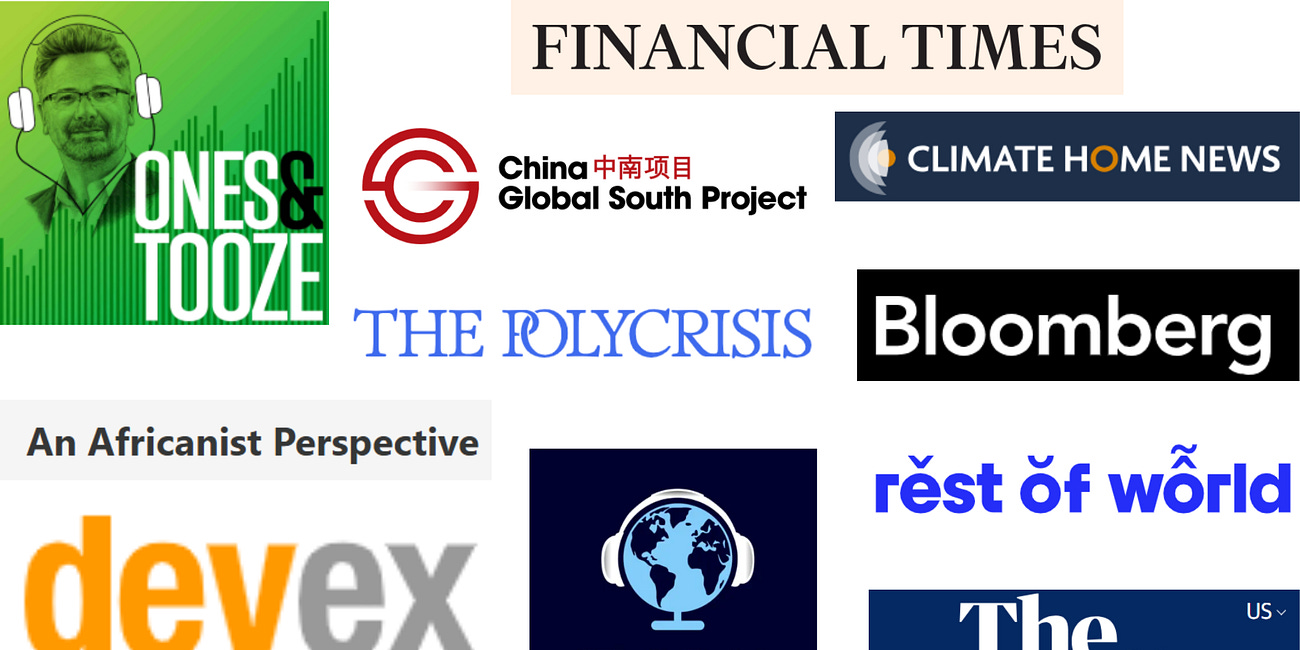

I recommend educators read the book "They Came for the Schools: One Town's Fight Over Race and Identity, and the New War for America's Classrooms.
Not sure which book to start with from all these brilliant suggestions!